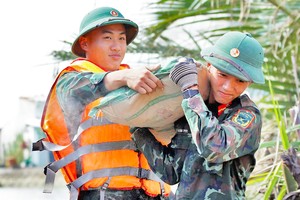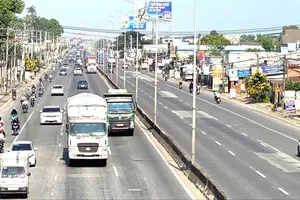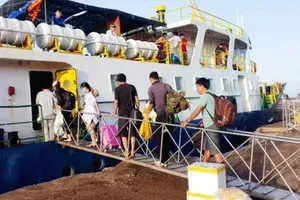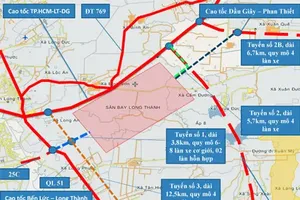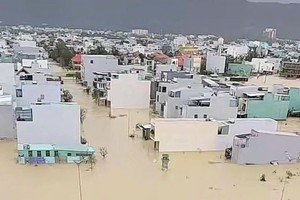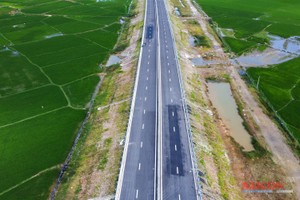Over 2,000 pregnant blue swimmer crabs (Portunus pelagicus) have been released in the sea off Phu Quoc Island during the Blue Crab Festival.
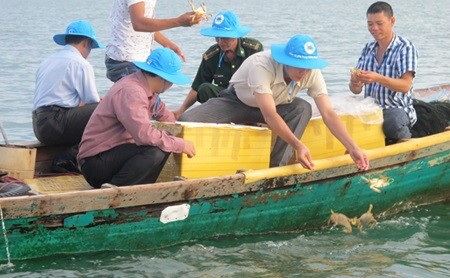
The release of the crabs is part of efforts to protect the crabs from over-fishing under the ‘Improving Blue Crab Exploitation Trade' project, co-organised by the World Wildlife Fund for Nature (WWF), the provincial Department of Agriculture and Rural Development and the Blue Crab Club of Viet Nam Association of Seafood Exporters and Producers (VASEP).
The festival also seeks to warn local seafood producers about the possible extinction of natural ocean blue crab by promoting the slogan: "Protect pregnant blue crab, handle little blue crab with care".
The slogan is meant to remind local farmers to not catch and trade pregnant blue crab or those with shells under 10cm in size.
According to the provincial agriculture and rural development department, blue crabs are a famous seafood brand in the Kien Giang sea, as well as a source of income for 20,000 local fishermen.
However, sources for natural blue crabs have been over-exploited in recent years due to mass catches using improper fishing equipment, such as small mesh nets, and incorrect harvest periods during the reproductive months of crabs.
Many fishermen and agents continue to catch, trade and process small blue crab, whose shells measure under 10cm.
In responding to the serious reduction of sea crabs in the area, an initiative was recognized by WWF, the provincial department and VASEP's Blue Crab Club in 2011 to restore the source of the seafood.
A blue crab bank was established as part of the programme to provide aid to local fishermen to ease the over-fishing of blue crab in the area.
"The project aims at improving the blue crab catch in communities in a sustainable way. It helps to ensure prolonging the livelihood of local fishermen by setting up measures to manage the protection of blue crabs, as well as the ocean's ecological system," said Nguyen Dieu Thuy, manager of WWF Viet Nam's seafood exploitation programme.
Under the programme, each farmer who joined the Blue Crab Bank was given a one-year VND3 million loan at preferential rates for development of the fishing industry.
Farmers made monthly interest payments to those banks, which were equal to as much as the price of five pregnant crabs.
The banks then keep the pregnant crabs in aquatic cages to let allow them to lay eggs. The money from the sale of the mother crabs is then returned as loans to other farmers.
"It's an effective model in the management and protection of blue crabs in the province. Local fishermen are well aware of the importance of protecting pregnant crabs to restore the stock of ocean crabs," said deputy director of the provincial Department of Agriculture and Rural Development Le Trung Kien.
He noted that the programme was jointly managed by communities and local businesses involved in catching and selling seafood, who now are also responsible to assure there are sustainable catches. Blue crabs from Kien Giang are exported to Japan, Thailand and the US.
